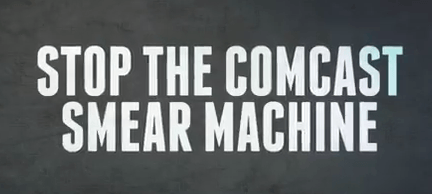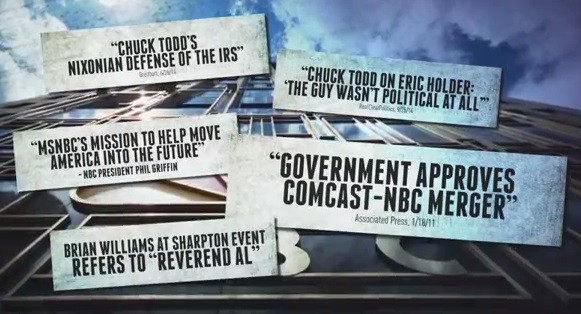
President Barack Obama
President Barack Obama will be in Cedar Falls, Iowa today to announce steps his administration plans to take to improve broadband in the United States, including a call to end laws that restrict community broadband development that limits competition.
“Today, too few Americans have affordable and competitive broadband choices, but some communities around the country are choosing to change that dynamic,” says a statement issued by the White House. “As a result – as outlined in a new report being issued today – cities like Lafayette, Chattanooga, and Kansas City, have broadband that is nearly one hundred times faster than the national average, yet still available at a competitive price. By welcoming new competition or building next-generation networks, these communities are pioneers in broadband that works, and today in Cedar Falls, Iowa, the President is highlighting their remarkable success stories and providing municipal leadership and entrepreneurs new tools to help replicate this success across the nation.“
The report, produced by the National Economic Council and Council of Economic Advisers, finds no evidence to support industry contentions that community-owned broadband duplicates existing broadband services and wastes taxpayer dollars. It also challenges cable and phone industry-backed groups claiming publicly owned broadband networks are business failures.
It cites the success of Chattanooga’s EPB Fiber service, operated by the local municipal utility. Not only is EPB successful financially, but it has introduced Chattanooga residents to the kind of competition sorely lacking in most cities for telecom services.
 “EPB’s efforts have encouraged other telecom firms to improve their own service,” states the report. “In 2008, for example, Comcast responded to the threat of EPB’s entrance into the market by investing $15 million in the area to launch the Xfinity service – offering the service in Chattanooga before it was available in Atlanta. More recently, Comcast has started offering low-cost introductory offers and gift cards to consumers to incentivize service switching. Despite these improvements, on an equivalent service basis, EPB’s costs remain significantly lower.”
“EPB’s efforts have encouraged other telecom firms to improve their own service,” states the report. “In 2008, for example, Comcast responded to the threat of EPB’s entrance into the market by investing $15 million in the area to launch the Xfinity service – offering the service in Chattanooga before it was available in Atlanta. More recently, Comcast has started offering low-cost introductory offers and gift cards to consumers to incentivize service switching. Despite these improvements, on an equivalent service basis, EPB’s costs remain significantly lower.”
In Wilson, N.C., Time Warner Cable customers pay significantly less for cable and broadband service than other North Carolina customers because of the presence of Greenlight, the community-owned fiber to the home provider. TWC customers in Wilson pay stabilized prices for service while residents in the nearby Research Triangle pay as much as 52 percent more for basic Internet service, according to the report. Greenlight’s competition has brought gigabit broadband to the community as well as lower prices for customers who decide to remain with Time Warner. The combined savings is estimated at more than $1 million annually for Wilson residents.

EPB is the municipal utility in Chattanooga, Tenn.
Those who believe municipal broadband is a waste of taxpayer dollars should consider the story of Lafayette, La.’s LUS Fiber. In addition to bringing superior broadband service to a city dominated by a cable operator that used to treat the market as an afterthought, the presence of LUS’ fiber to the home network has forced Cox Cable to improve service, offer significant customer retention deals to departing customers and defer rate increases. The investment in community broadband has saved residents an estimated $4 million from rate hikes that went ahead in other Cox cities, with an estimated total savings of between $90 and $100 million for Lafayette-area broadband customers over LUS’ first 10 years of service.
Taxpayer-supported institutions like local government, law enforcement, and schools have also seen dramatic savings by switching to municipal solutions. In Scott County, Minn. the local government’s annual bond payment for constructing their own broadband network is $35,000 less than what the county used to pay private companies for a much slower network. Area schools that formerly paid private sector telecom companies $58 per megabit of Internet speed now pay $6.83 — a savings of nearly 90 percent. Schools also received dramatic speed increases from 100 to 300Mbps. They paid less for more service — from $5,800 a month before to $2,049 a month today. Those payments go straight back to the county government instead of into the hands of out-of-state investment bankers and shareholders. On the state level, Minnesota’s public institutional network is saving taxpayers almost $1 million a year.
With the broadband profit gravy train for big cable and phone companies grinding to a halt in competitive areas, several of these companies have spent millions lobbying state governments to outlaw public broadband services. They have succeeded in 19 states, primarily with the assistance of the corporate-funded American Legislative Exchange Council (ALEC), which appeals to primarily Republican lawmakers with claims government broadband is unfairly competing with the private sector. In fact, private providers have not been driven out of communities where they face municipal competition, but they have been forced to lower prices and improve service for customers.
Today the president will call for a new effort to support local self-determination for broadband by strongly opposing industry-backed, anti-competitive deterrents and bans on community-owned networks. The president will also sign a letter addressed to FCC chairman Thomas Wheeler encouraging him to move forward with a federal ban on state broadband laws that restrict broadband development.
He will also announce additional funding for rural broadband expansion and take steps to bring local leaders together to explore how the development of community broadband initiatives in their cities and towns can make a major difference in the 21st century digital economy. The president recognizes that most Americans lack sufficiently competitive choices for broadband service and often have just one choice — the cable company — for broadband speeds greater than 25Mbps. That means many Americans are seeing their broadband speeds lag while their monthly bills continue to grow.
Community-owned broadband may be the only alternative many cities have for better broadband as would-be competitors are scared off by high construction costs and an inability to secure cable television programming at competitive prices for their customers.
 Time Warner Cable was named by the Better Business Bureau’s its biggest overall offender in the Charlotte region, generating 187 complaints last year, according to the group’s annual year-end report, noted by the Charlotte Observer.
Time Warner Cable was named by the Better Business Bureau’s its biggest overall offender in the Charlotte region, generating 187 complaints last year, according to the group’s annual year-end report, noted by the Charlotte Observer.

 Subscribe
Subscribe A conservative group has launched an assault on the Comcast-Time Warner Cable merger, accusing the cable company of cozying up to the Obama Administration and the political left in its news coverage to win corporate favors.
A conservative group has launched an assault on the Comcast-Time Warner Cable merger, accusing the cable company of cozying up to the Obama Administration and the political left in its news coverage to win corporate favors. “We intend to demonstrate to Comcast/NBC/Universal that [conservatives] have not thrived for six decades – we have not come all this way – just to cede our national and, indeed, global victories for the cause of freedom to a group of grasping corporate operatives seeking commercial and political power. So, the focus of the conservative movement needs to be not on the politicized and partisan faces of NBC or the hired slanderers at MSNBC – criticizing them just makes them more important than they are – but on the corporate ‘suits in the suites’ who are the truly culpable parties.”
“We intend to demonstrate to Comcast/NBC/Universal that [conservatives] have not thrived for six decades – we have not come all this way – just to cede our national and, indeed, global victories for the cause of freedom to a group of grasping corporate operatives seeking commercial and political power. So, the focus of the conservative movement needs to be not on the politicized and partisan faces of NBC or the hired slanderers at MSNBC – criticizing them just makes them more important than they are – but on the corporate ‘suits in the suites’ who are the truly culpable parties.”
 “EPB’s efforts have encouraged other telecom firms to improve their own service,” states the report. “In 2008, for example, Comcast responded to the threat of EPB’s entrance into the market by investing $15 million in the area to launch the Xfinity service – offering the service in Chattanooga before it was available in Atlanta. More recently, Comcast has started offering low-cost introductory offers and gift cards to consumers to incentivize service switching. Despite these improvements, on an equivalent service basis, EPB’s costs remain significantly lower.”
“EPB’s efforts have encouraged other telecom firms to improve their own service,” states the report. “In 2008, for example, Comcast responded to the threat of EPB’s entrance into the market by investing $15 million in the area to launch the Xfinity service – offering the service in Chattanooga before it was available in Atlanta. More recently, Comcast has started offering low-cost introductory offers and gift cards to consumers to incentivize service switching. Despite these improvements, on an equivalent service basis, EPB’s costs remain significantly lower.”


